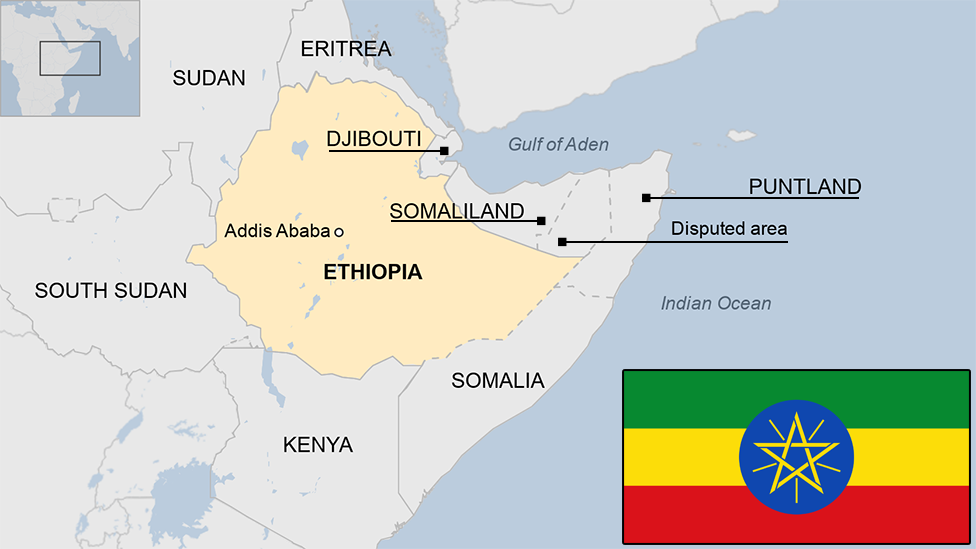Ethiopia Tigray crisis: EU concern over war crime reports
- Published
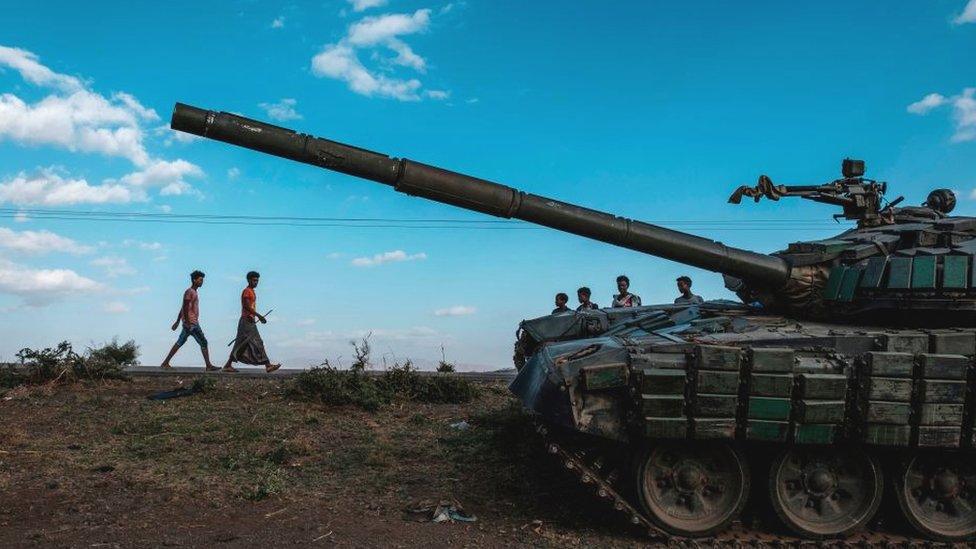
The Ethiopian government has repeatedly denied targeting civilians during its operations
The European Union says it is getting consistent reports of ethnic-targeted killings and possible war crimes in Ethiopia's northern region of Tigray.
The defence forces entered Tigray early in November to oust the region's ruling party after its troops had captured federal military bases.
The government declared victory by the end of that month, but the EU says the situation remains dire.
The conflict threatens the stability of the entire region, the EU says.
The government of Nobel Peace Prize-winning Prime Minister Abiy Ahmed insists that it has been using proportional force to restore law and order and bring a "criminal clique" to justice.
Since the end of November there has been an operation to find fugitive Tigray People's Liberation Front (TPLF) party leaders who vowed to continue the fight after the regional capital was captured by the army.
"The situation on the ground goes well beyond a purely internal 'law and order' operation," EU foreign affairs chief Josep Borrell said in a statement, external.
"We receive consistent reports of ethnic-targeted violence, killings, massive looting, rapes, forceful returns of refugees [to Eritrea] and possible war crimes," he said.
With more than two million forced to flee their homes, people in Tigray were in desperate need of aid but access to the region remains limited, he added.
Tigrayans make up around 6% of the Ethiopia's more than 110 million population.
How does the crisis involve Ethiopia's neighbours?
Mr Borrell said that Eritrean troops were involved in military operations in Tigray, something both the Ethiopian and Eritrean governments deny.
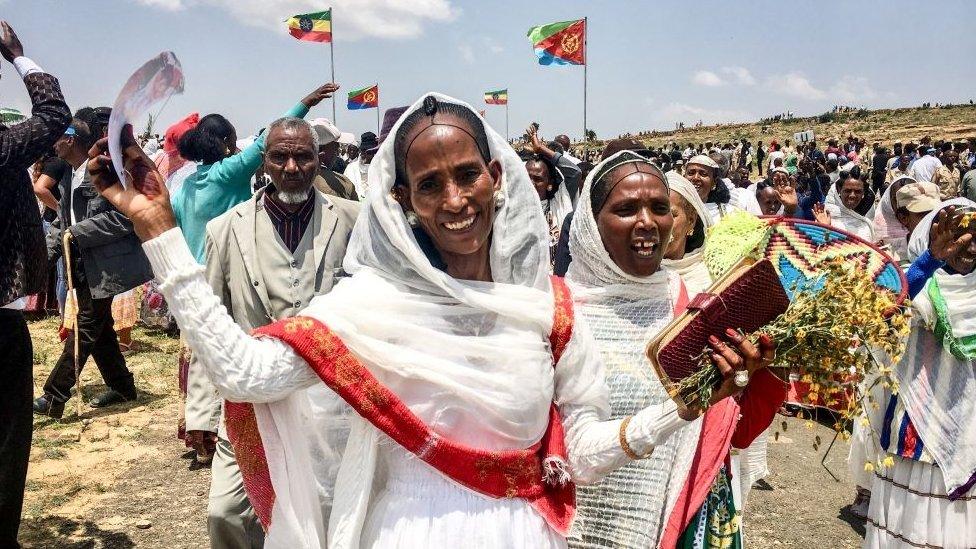
Mr Abiy won the Nobel Peace Prize for ending tensions with Eritrea, which sparked celebrations in 2018
They are accused of forcibly taking back Eritrean refugees who lived in the UN-run camps in Tigray, before the conflict there broke out.
Nearly 100,000 Eritreans lived in four camps in Tigray after fleeing political persecution and military conscription in the one-party state.
His comments come a day after UN High Commissioner for Refugees Filippo Grandi said the UNHCR had not been given access to the Shimelba and Hitsats refugee camps since early November.
"Reports of additional military incursions over the last 10 days are consistent with open source satellite imagery showing new fires burning and other fresh signs of destruction at the two camps," he said.


The EU official said the crisis was also affecting Somalia and Sudan:
In Somalia, Ethiopian troops deployed there to help the UN-backed government fight Islamist militants were being withdrawn
55,000 Ethiopians had fled to Sudan and the conflict had "dangerously" escalated border tensions over the disputed region of al-Fashaga.
What is Ethiopia's response?
The Ethiopia embassy in London said the authorities wanted to help those in need.
Three consequences of the ongoing crisis in Tigray
"The government of Ethiopia remains committed to working closely with its humanitarian and development partners to address any outstanding challenges that could hinder the safe, effective, and efficient delivery of humanitarian assistance to all affected populations," it said.
Mr Borrell said the EU would continue to withhold 88m euros ($106m; £78m) in budget support for Ethiopia until humanitarian access to Tigray was allowed.
He suggested Sudan could help in finding a solution, given how Ethiopia had helped negotiate a peace deal after the overthrow of President Omar al-Bashir in 2019.
"As we often say, we support 'African solutions to African problems'. It is urgent, now, to find these solutions."
Related topics
- Published17 December 2020

- Published3 December 2020
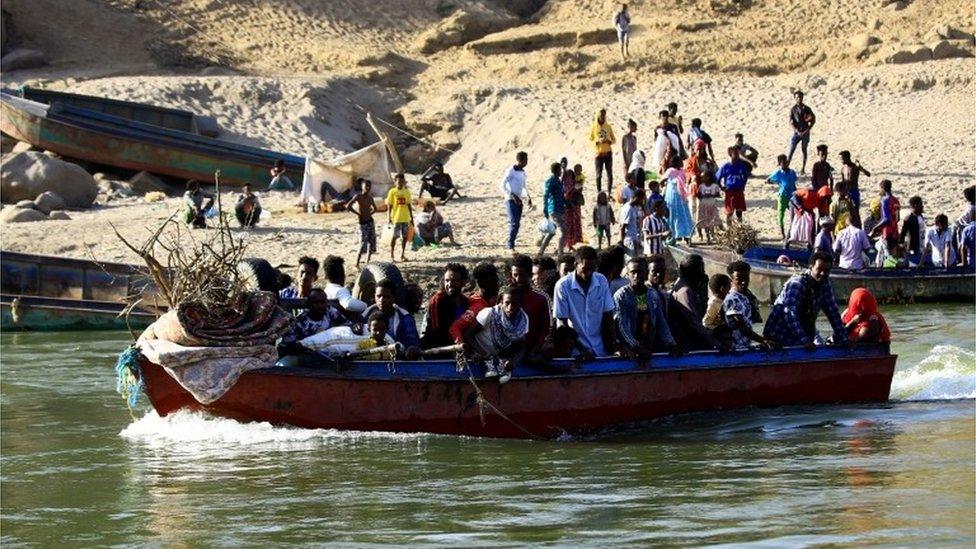
- Published25 November 2020
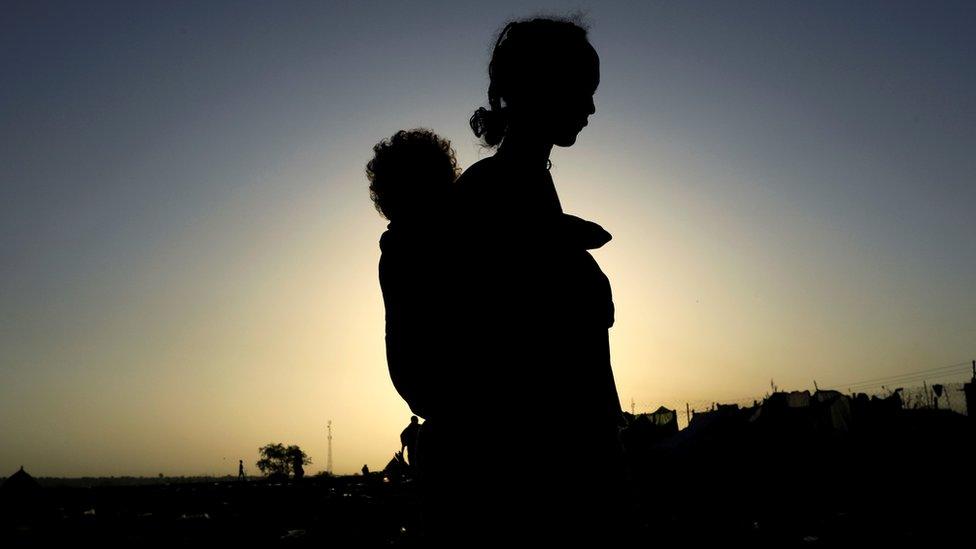
- Published2 January 2024
